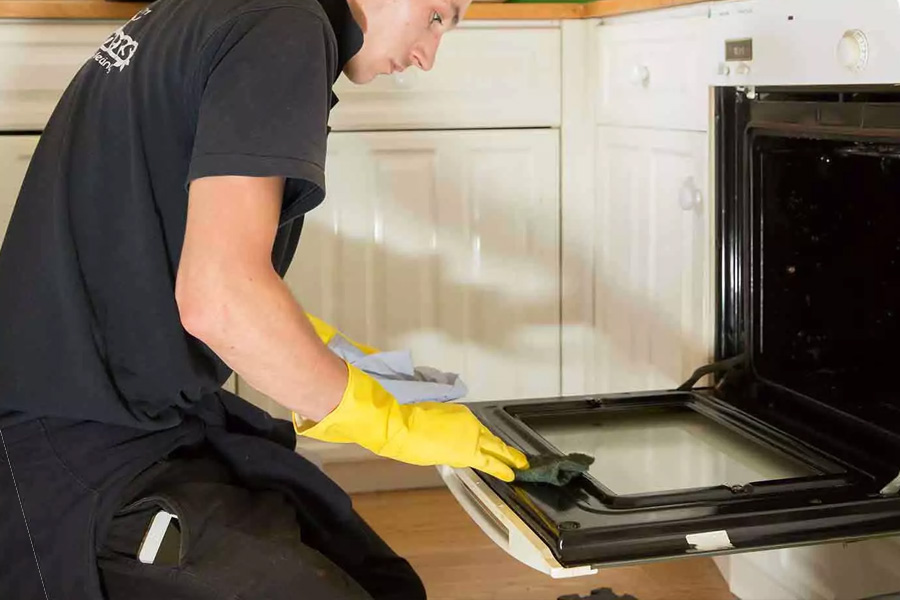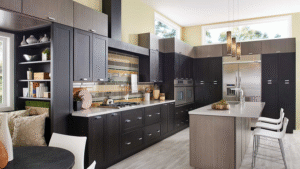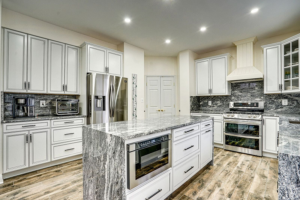Gas vs Electric Ovens: Which One Is Better?

Image Source: fantasticcleaners.com.au
You’re halfway through prepping dinner, hands covered in flour, and suddenly the recipe says, “Bake at 220°C in a fan-forced oven.” You glance at your trusty old gas oven and wonder—would this turn out better in an electric one?
It’s a question many home cooks have asked mid-meal. Choosing between gas and electric ovens isn’t just about what’s trendy. It comes down to the way you cook and how much you’re willing to spend in the long run.
In this guide, we’ll walk you through the hot debate and help you figure out which oven really belongs in your kitchen.
Cooking Performance
The type of oven you choose can significantly affect your cooking results. To choose the oven that best suits your cooking style. You need to fully understand the distinct characteristics of each one.
Gas ovens heat up fast and give you great control over temperature. Their heat-regulating ability makes them suitable for baking, roasting, and achieving that perfect sear on meat or anything else that needs the right precise heat conditions.
Electric ovens, on the other hand, tend to take longer to warm up, but once they’re hot, they deliver reliable and consistent results. These appliances are great for baking or making casseroles.
Plenty of professional cooks love gas ovens due to their flexibility when it comes to adjusting temperatures. However, electric ovens have their own fan club too, especially among cooks who want dependable and near-perfect results.
It all comes down to whether you prefer the hands-on control of gas or the steady reliability of electric.
Energy Efficiency
A lot of people lean toward gas ovens because they run on natural gas, a much cheaper alternative to their electric counterparts. This also makes it the ideal option, particularly if you live in an area where gas is widely accessible.
In fact, gas models are typically around 20% more efficient compared to their electric counterparts in terms of energy consumption.
That said, if electricity costs are affordable in your area, an electric oven can be a more suitable choice, especially if you’re using renewable energy like solar power.
Additionally, you can boost efficiency with simple habits like preheating when necessary and turning off the oven a few minutes early so that the remaining heat finishes the job.
In the end, no matter which type you choose, regularly cleaning and checking the door seals in both types of ovens helps it run at its best.
Installation and Maintenance Costs
Choosing an oven isn’t just about the sticker price. It’s also about the long-run costs. Gas models can cost more to set up because they often need extra plumbing and proper ventilation, especially if your home doesn’t already have gas lines.
Electric units, on the other hand, are usually easier and cheaper to install. In most cases, if you’ve got a power outlet, you’re good to go.
Long-Term Maintenance Costs
Over time, gas ovens usually will need more check-ups since gas lines and burners can have issues like clogging, wearing out, or leaking. That’s why they need regular inspection and upkeep.
In addition, gas ovens can be a bit trickier to keep clean because of their design. Their burners and grates can easily trap grease and food bits, which are normall difficult to reach.
The open flame can also lead to more splattering and spills, which creates even more surfaces to clean, making it frustrating to clean them. In that case, don’t be afraid to hire expert oven cleaners. They’ll save you a lot of time and effort while offering you first-rate services.
Electric ovens, however, are simpler by design. With components that can hardly go wrong, such as fans and heating elements, they’re more reliable and easier to maintain in the long run.
Budget Restrictions
It’s wise to think about your budget and what your home is set up for. If you’ve already got gas lines, the higher setup cost of a gas unit is going to be worth it thanks to its cooking efficiency.
If not, electric models are usually cheaper and easier to install. It’s all about weighing the setup costs against long-term savings and your personal cooking style to find the option that fits you best.
Environmental Impact
When it comes to the environment, these two ovens leave very different footprints. Each type has its pros and cons, so it’s good to think about this if you’re trying to go green.
Gas units are great kitchen companions, but they release increased amounts of harmful gases, such as carbon dioxide, into the atmosphere.
Electric models produce no emissions during usage, which makes them more eco-friendly, especially if your home already uses renewable energy.
If you’re trying to go green, it’s worth considering not just the appliance itself, but also the energy source behind it. For example, an electric oven powered by solar energy will have a much lower environmental impact than one relying on a coal-based grid.
User Experience and Safety
When picking an oven, think about how easy it is to use and how safe it is. In short, you need to know what each type can and can’t do to make a smart choice.
Gas ovens heat up fast and offer great temperature control, which is great if you like to be hands-on in the kitchen. Just be cautious: open flames and gas leaks are real risks.
Make sure your kitchen has good airflow and check for any gas smells before using the oven. If possible, consider getting a carbon monoxide detector for peace of mind.
Electric ones, on the other hand, are generally safer since they don’t use gas. Still, you should be careful around hot surfaces. A trusty pair of oven mittens and a tidy workspace go a long way in preventing burns.
If you like to fine-tune your cooking, gas ovens give you that flexibility. On the other hand, electric units give steady, automated heat, perfect if you prefer a more hands-off cooking experience.
Conclusion
After years of making do with a moody old oven that either scorched your dinner or left your roast half-cooked, you’ve finally decided it’s time for an upgrade.
Whether you’re a gas diehard who loves a bit of flame control, or you’re leaning electric for that easy-breezy consistency, the right oven depends on your kitchen style—and your power bill.
Weigh up what matters most: cost, convenience, and how green you want to go. In the end, pick the one that suits your cooking groove and makes weeknight dinners a little more convenient and a whole lot more enjoyable.








